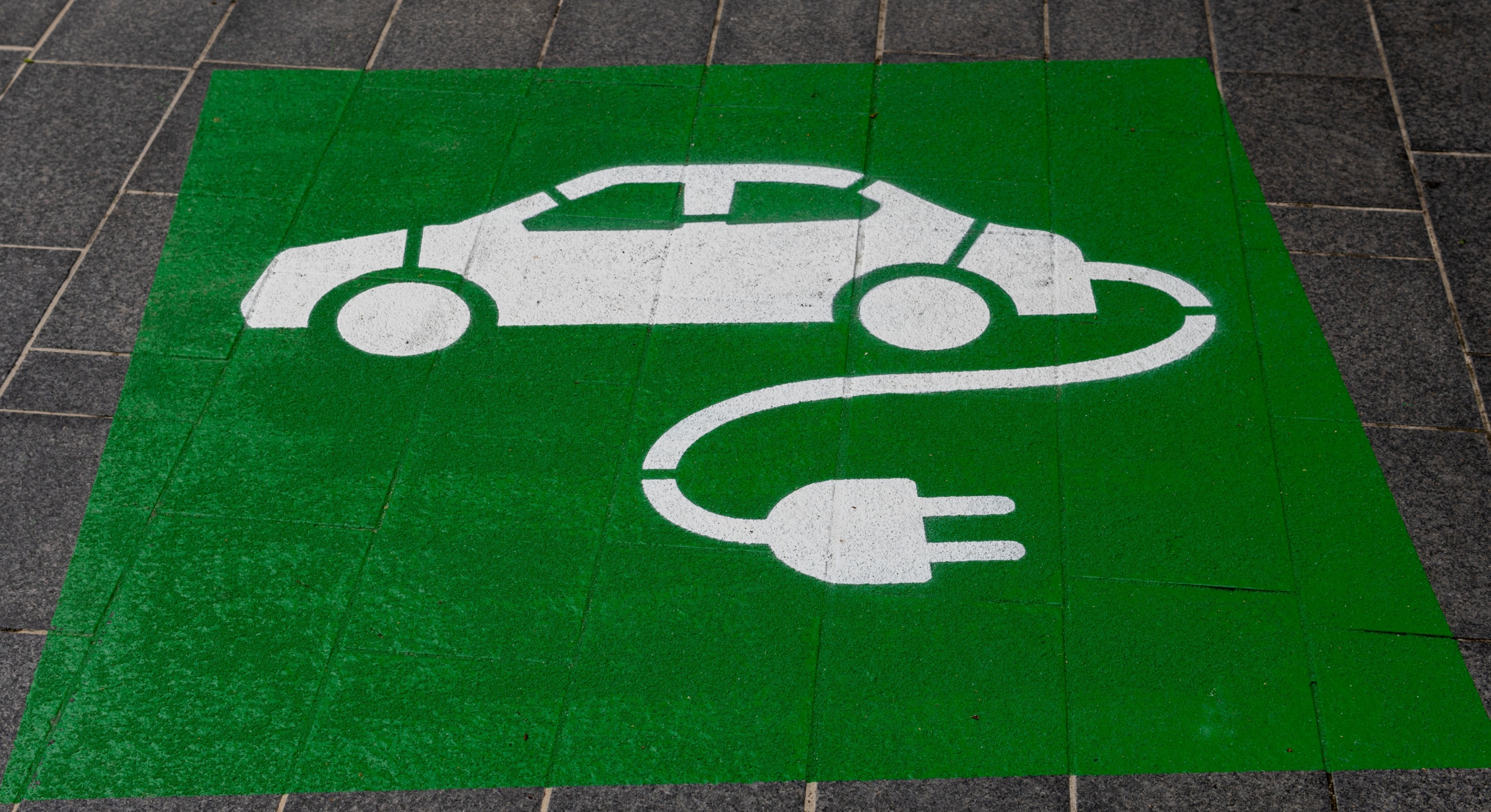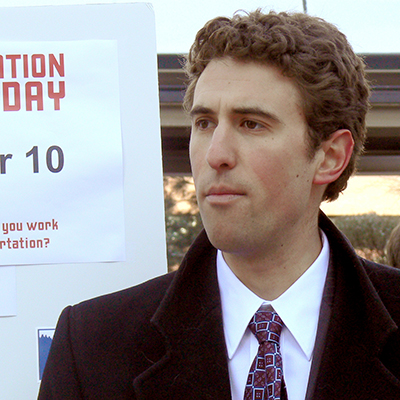
Free RTD buses and trains in August could make a big impact on a lot of people’s lives but success depends on all of us climbing on board
Transit will be free all day, every day in August for every RTD train, bus and shuttle. This one-month pilot presents an incredible opportunity to make a significant impact on people’s lives in the short-run and to build momentum for a significant improvement in transit in the long-run. That is, if we all get on board.
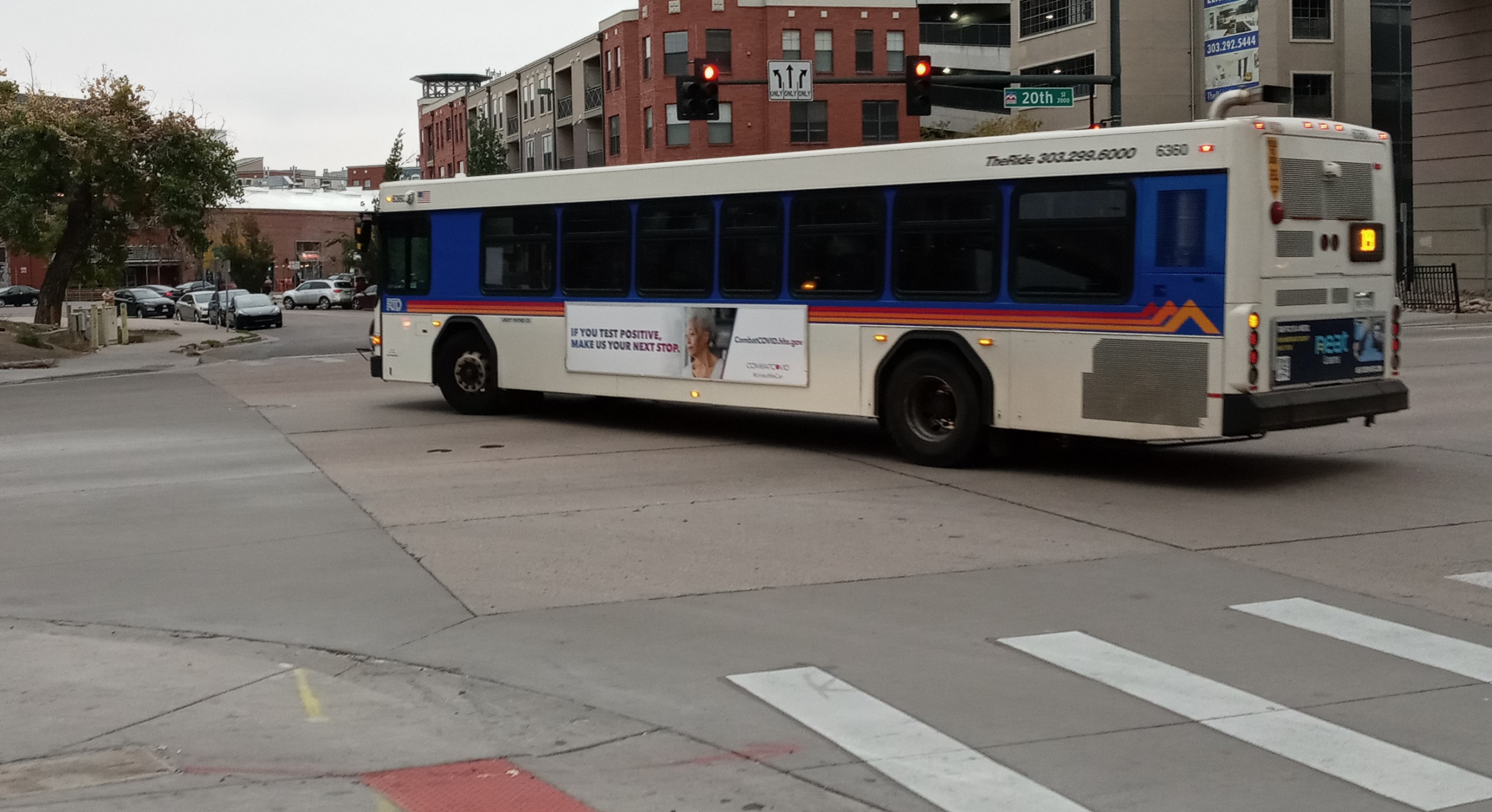
Transit will be free in August – all buses, trains and shuttles, every day, all the time, anywhere on RTD’s service.
Making buses and trains free to ride in August will not completely solve our transportation problems. Our current service is not good enough to give people the kind of travel options that can help people avoid traffic, reduce costs, cut air pollution, and eliminate unnecessary traffic fatalities.
But free buses and trains in August can significantly cut the cost of travel, reduce air pollution during ozone season, and build momentum for big improvements in the frequency, reliability and accessibility of our transit system.
Ultimately, the success of this August pilot program will significantly depend on how much we come together as a community and get on board.
All a board!
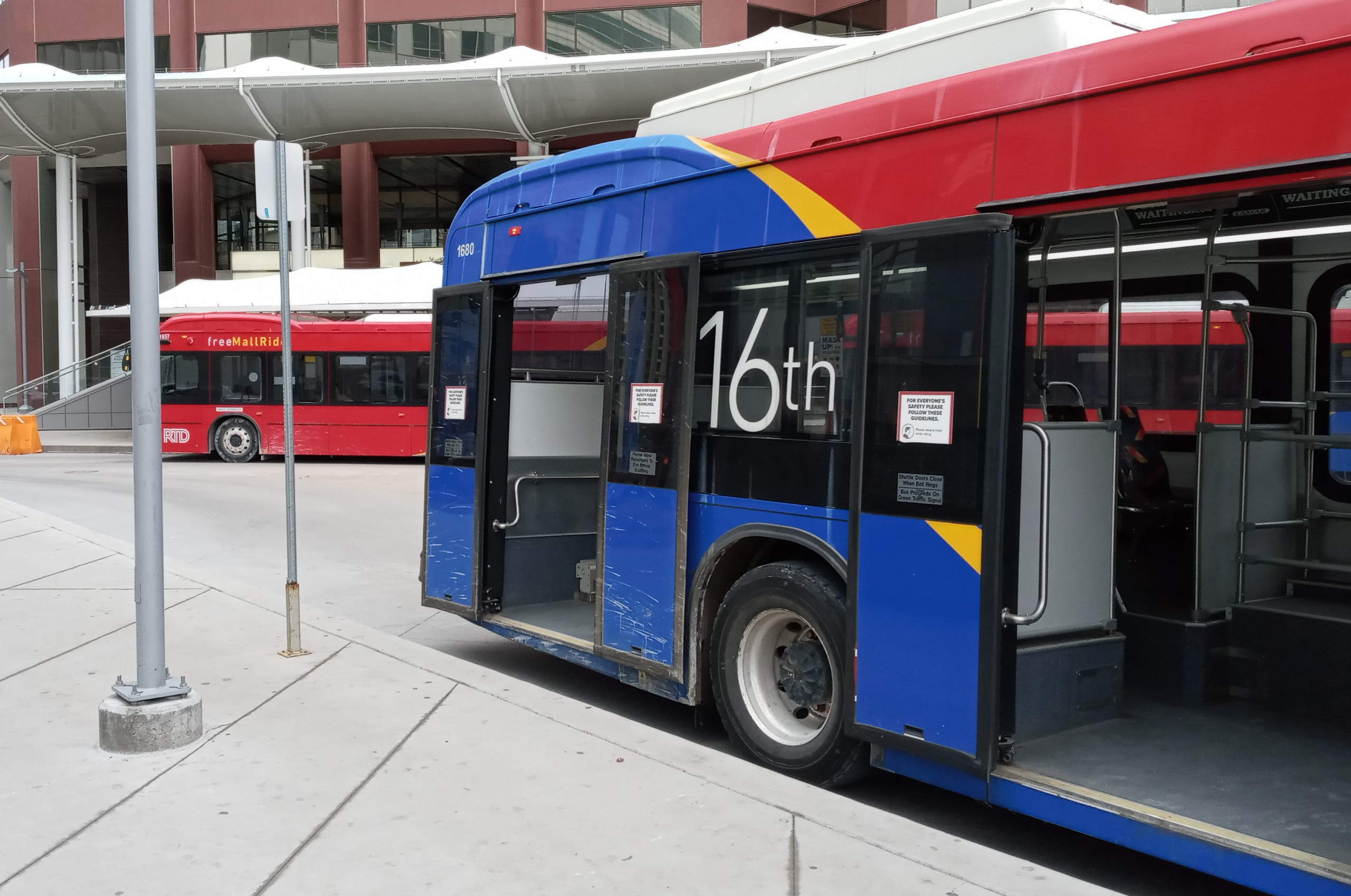
RTD’s free 16th Street Mall Ride has been moving people for years – Credit Staff
Cutting Transportation Costs
It costs a lot to drive.
For individuals, owning and operating a vehicle is really expensive. Back in 2019, AAA Colorado pegged the annual cost for an average new car in Colorado at $8,849 (over $10,000 if you own a pickup).
Since then, gas prices and other costs have skyrocketed. If a Coloradan drives an average of 12,899 miles a year, in a car that gets 25.7 miles-per-gallon, a $4.89 gallon of gas means you pay about $2,400 annually for fuel.
Some people don’t drive but use transit instead. In 2020, RTD saw 52 million annual boardings.
The cost of riding RTD for those passengers? It depends.
Standard, 3-hour fare is between $3 and $5.25 depending on how far you go (the airport is $10.50).
There’s a number of discounts that can cut those fares in half or more. There are also monthly passes that range from $34 to $200.
Bottomline, it costs anywhere from hundreds to $2,400 a year to ride transit. That’s much cheaper than owning and operating a vehicle (if transit gave you the opportunity to forgo a car).
But still a lot of money.
Free buses and trains during August will cut travel costs for people.
- For people who buy a regional monthly, you’ll save $200.
- For people who depend on transit daily but don’t have a pass, you’ll save $50-$150.
- For someone who doesn’t use transit but wants to leave their car at home for some or all of the month of August, you could save $200 just on gas.
These are meaningful, monthly cost savings and we should do everything we can to maximize the number of people who benefit.
Reducing Air Pollution
Making transit free also incentivizes people to travel in ways that can reduce the cost of air pollution in our region.
We’re in ozone nonattainment, which means, mostly during hot summer months, our air pollution exceeds health limits. That impacts everything from asthma to heart disease to Alzheimer’s disease.
Pollutants from tailpipes are a major source of dangerous ground-level ozone pollution.
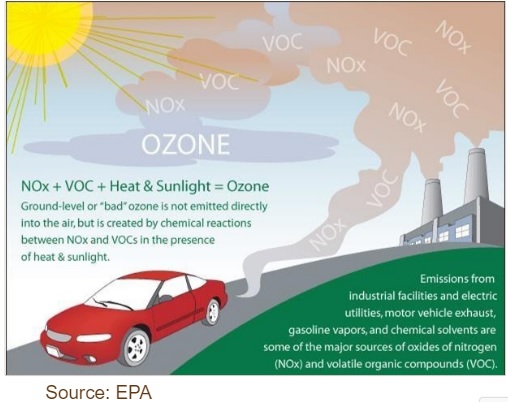
Tailpipe emissions also fuel climate change, which is leading to more extreme weather events and fire dangers that also impact our air quality.
It is unlikely that one month of free transit will be enough to completely clean up our air, even if we see the kinds of ridership increases (22%) that Utah saw in their Fare Free February.
But there is no “one thing” that will bring us clean air. And with gas prices where they are at, I know some people will leave their car (and the tailpipe pollution) at home, helping us chip away at our dirty skies.
So eliminating fares and providing free bus and train rides throughout the month of August not only saves lots of people money, but does it in a way that incentivizes cleaner travel on transit.
That should be reason enough to hop on board and help make the month as successful as possible.
But there’s more.
Building Momentum for More Frequent, Reliable Buses and Trains
The stakes are high right now when it comes to transportation. The success of our region, from our health to our economy to saving lives, depends on the success of our transit system.
But our system is far from perfect.
Outside of the cost of the fares, I often hear “I’d take the train more but it comes so infrequently” or “I tried transit but the bus was really late and I can’t depend on it.”
I’m sure you could add plenty of additional critiques.
- The bus is stuck in traffic and slow
- The bus stop is just a patch of grass and I don’t feel comfortable there alone at night
- The buses and trains don’t start running early enough or late enough to work with my schedule
To meet our needs and recruit LOTS more people to ride, we need buses and trains that are coming every 10 minutes all day long, have dedicated lanes so they are fast and reliable, and have amenities at bus stops and stations that ensure people are safe, welcome and comfortable.
That’s going to take more money.
We need to significantly increase our investments in transit – not expensive new rail lines but the core of transit – more buses, more drivers, safer stops.
With so many eyes on our transit system during the month of August, we have a chance to build momentum for supporting a better transit system.
For one thing, there is an opportunity to get feedback and direction from thousands of people who will be trying transit for the first time and can tell us exactly what they want to see to make riding the bus or train a regular event.
We should listen and act on what they have to say.
There is also an opportunity to lean into the month-long pilot program and help make transit as welcoming, easy and fun as possible.
That doesn’t mean ignoring or papering over the inadequacies of the current system. We should document the problems so we can fix them.
But a late bus is not evidence that we should get rid of the bus system. It’s evidence that we need to improve the system so buses come more frequently and reliably.
It will be easier to build support for the investments we need to make if we maximize the positive experiences people have during August.
If a bus is running late, we can be there with a smile, a helping hand and a guide to the places people can access via their bus that they may not know (here’s my list for the 52 route – Coors Field, my favorite Vietnamese restaurant on Federal, Regis University, and Old Town Arvada).
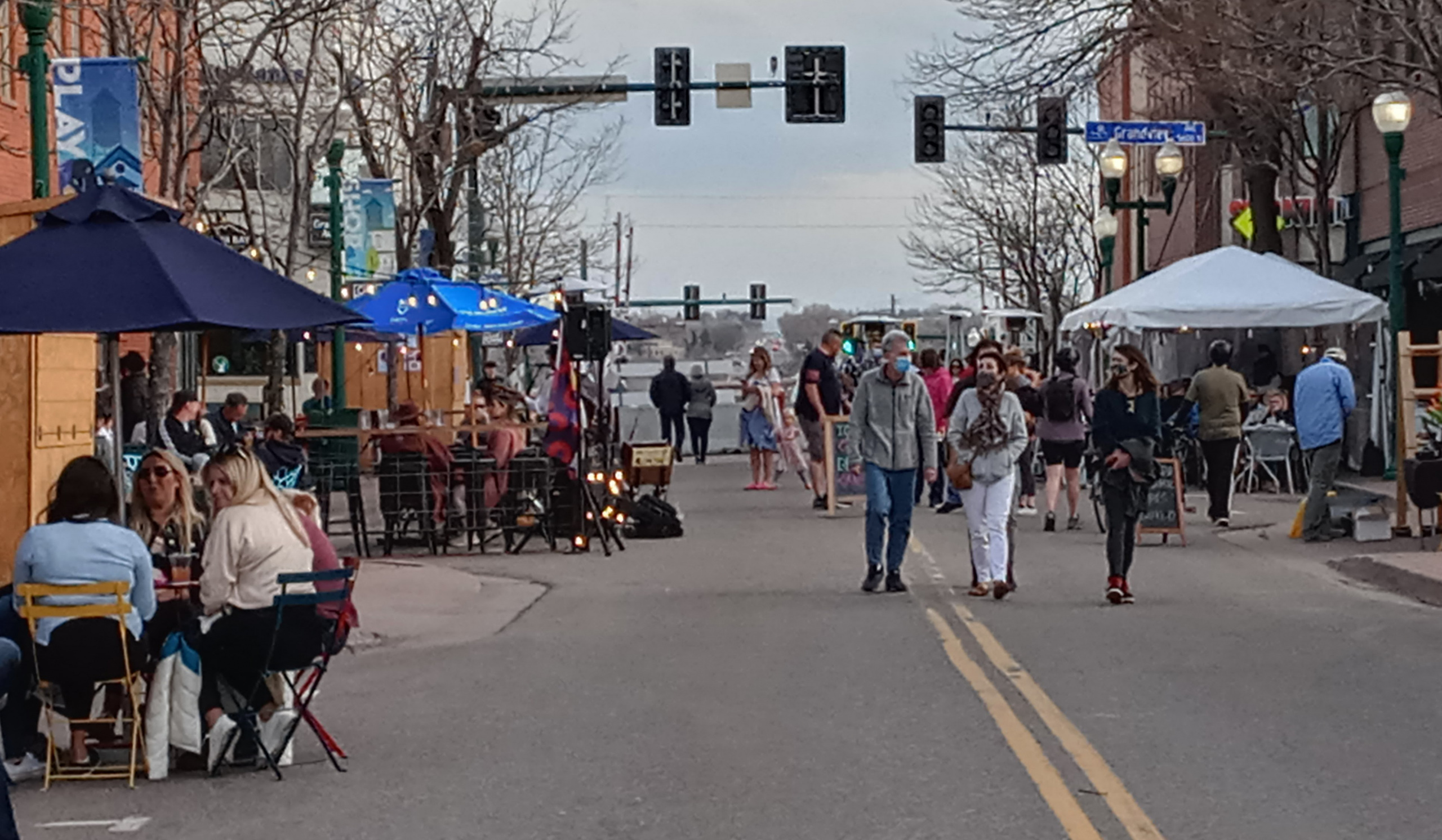
Old Town Arvada’s pedestrian area. Accessible via the 52 bus – Credit Staff
What can you do to help in August? Here’s some ideas:
- We need artists to decorate bus stops
- We need musicians to welcome people with music when they arrive at stations
- We need bars and restaurants to help people make the safe choice to get home
- We need writers, foodies, and urban explorers to document the many marvelous places each bus and train route goes
- We need people to organize a trip to one of our parks, restaurants or cultural centers for their neighbors
- We need employers to celebrate their employees who travel by bus or train
- We need social service providers help everyone feel safe and welcome at stops and stations
We have a chance for everyone to come together and work to make August’s free transit pilot as successful as possible.
In the short-term, success in August will be measured by the money we helped current and new riders save, the pounds of pollution we didn’t put in the air, and the number of new riders who tried transit.
In the long-term, success will be measured by the momentum we build toward a better transit system that has the ability to significantly increase service and provide a fast, reliable, safe ride, recruiting hundreds of thousands of more people to climb aboard.
There are so many ways each of us can enhance the experience of transit users and make a lasting impression in August that will be critical for the long-term success of our region.
Join me as we climb aboard free buses and trains all day, every day during August
Topics
Authors
Danny Katz
Executive Director, CoPIRG
Danny has been the director of CoPIRG for over a decade. Danny co-authored a groundbreaking report on the state’s transit, walking and biking needs and is a co-author of the annual “State of Recycling” report. He also helped write a 2016 Denver initiative to create a public matching campaign finance program and led the early effort to eliminate predatory payday loans in Colorado. Danny serves on the Colorado Department of Transportation's (CDOT) Efficiency and Accountability Committee, CDOT's Transit and Rail Advisory Committee, RTD's Reimagine Advisory Committee, the Denver Moves Everyone Think Tank, and the I-70 Collaborative Effort. Danny lobbies federal, state and local elected officials on transportation electrification, multimodal transportation, zero waste, consumer protection and public health issues. He appears frequently in local media outlets and is active in a number of coalitions. He resides in Denver with his family, where he enjoys biking and skiing, the neighborhood food scene and raising chickens.
Find Out More
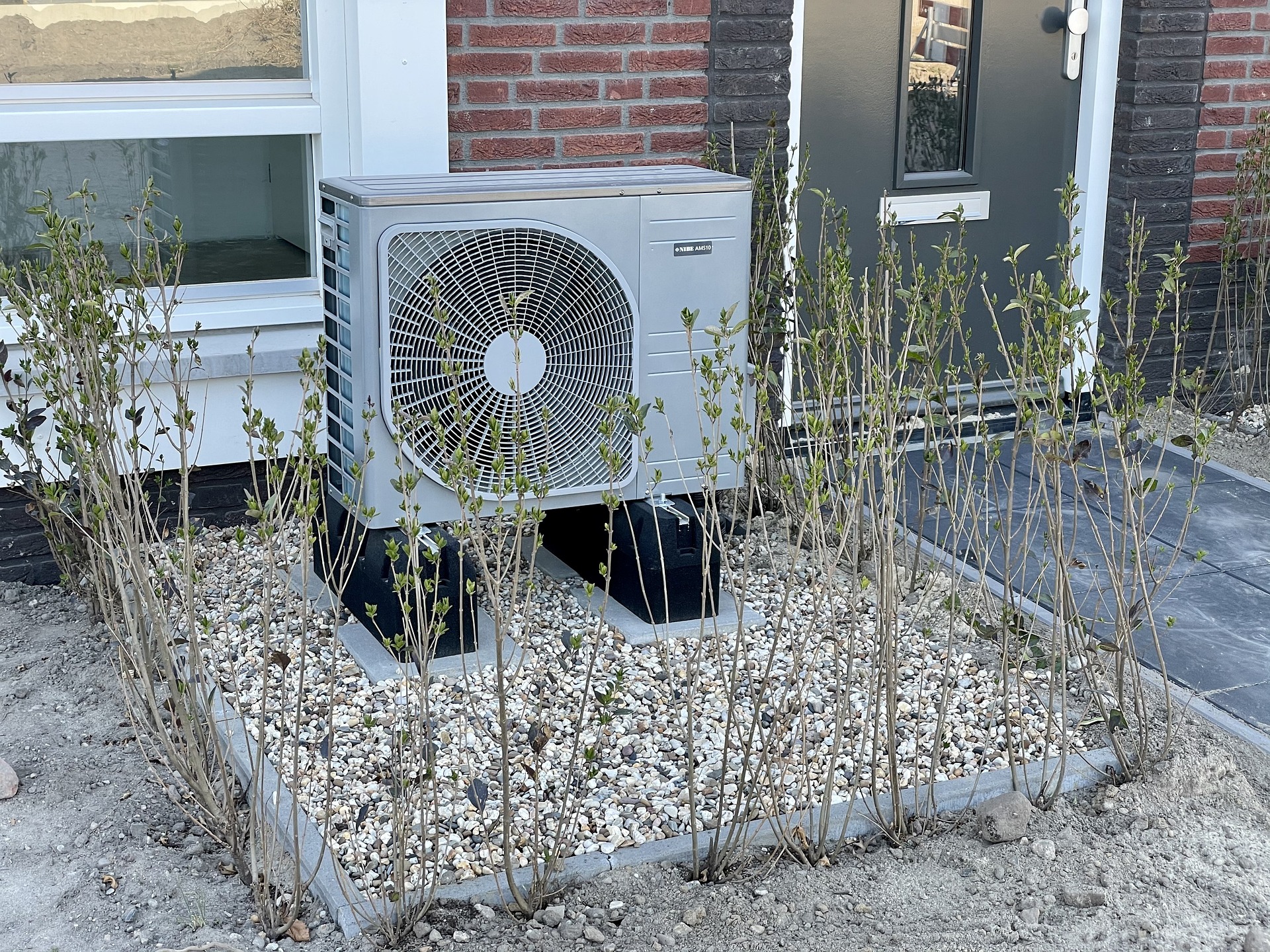
What is Clean Heat?
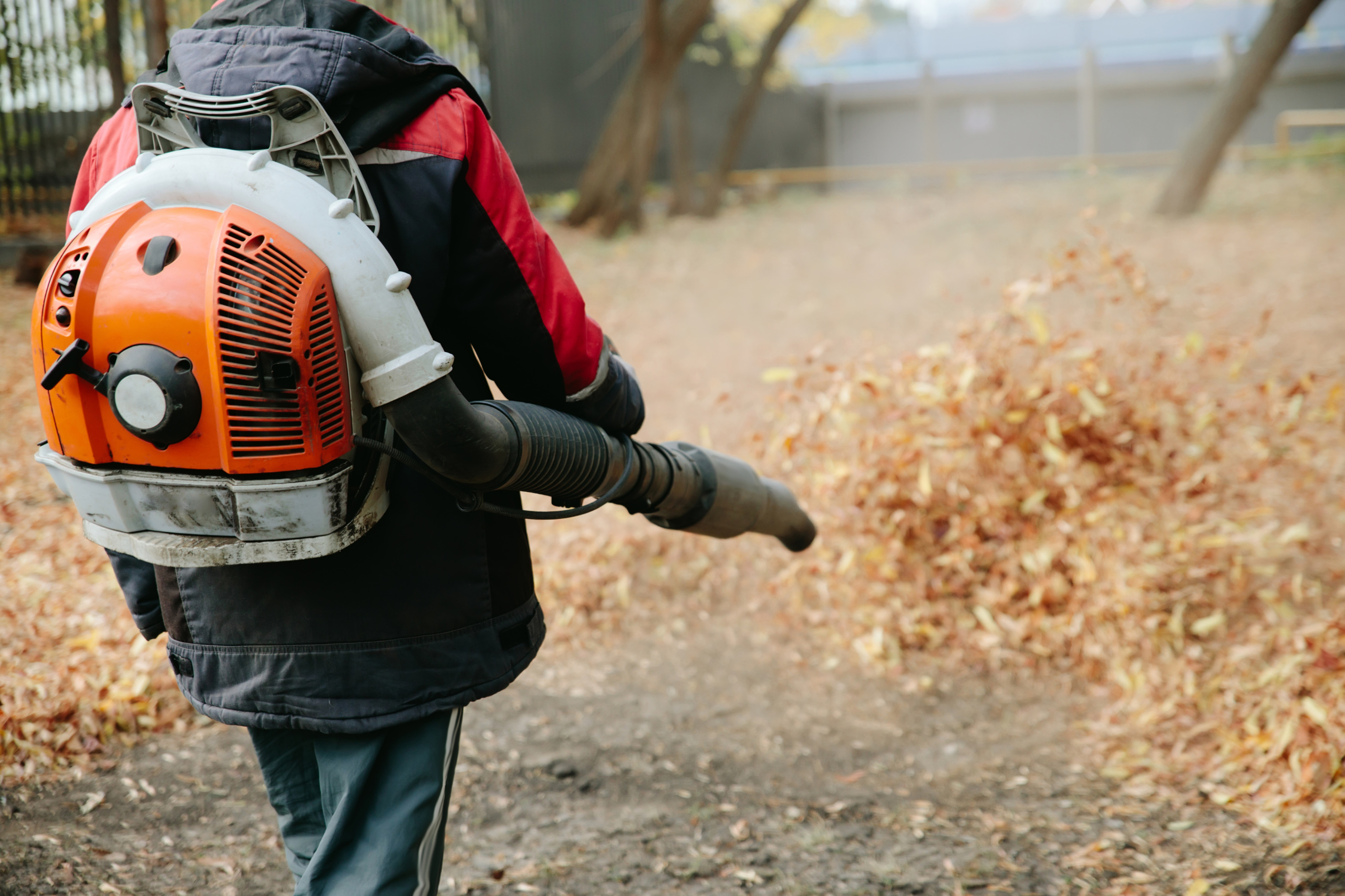
Cleaning up our air by shifting to electric lawn equipment

A look back at what our unique network accomplished in 2023
